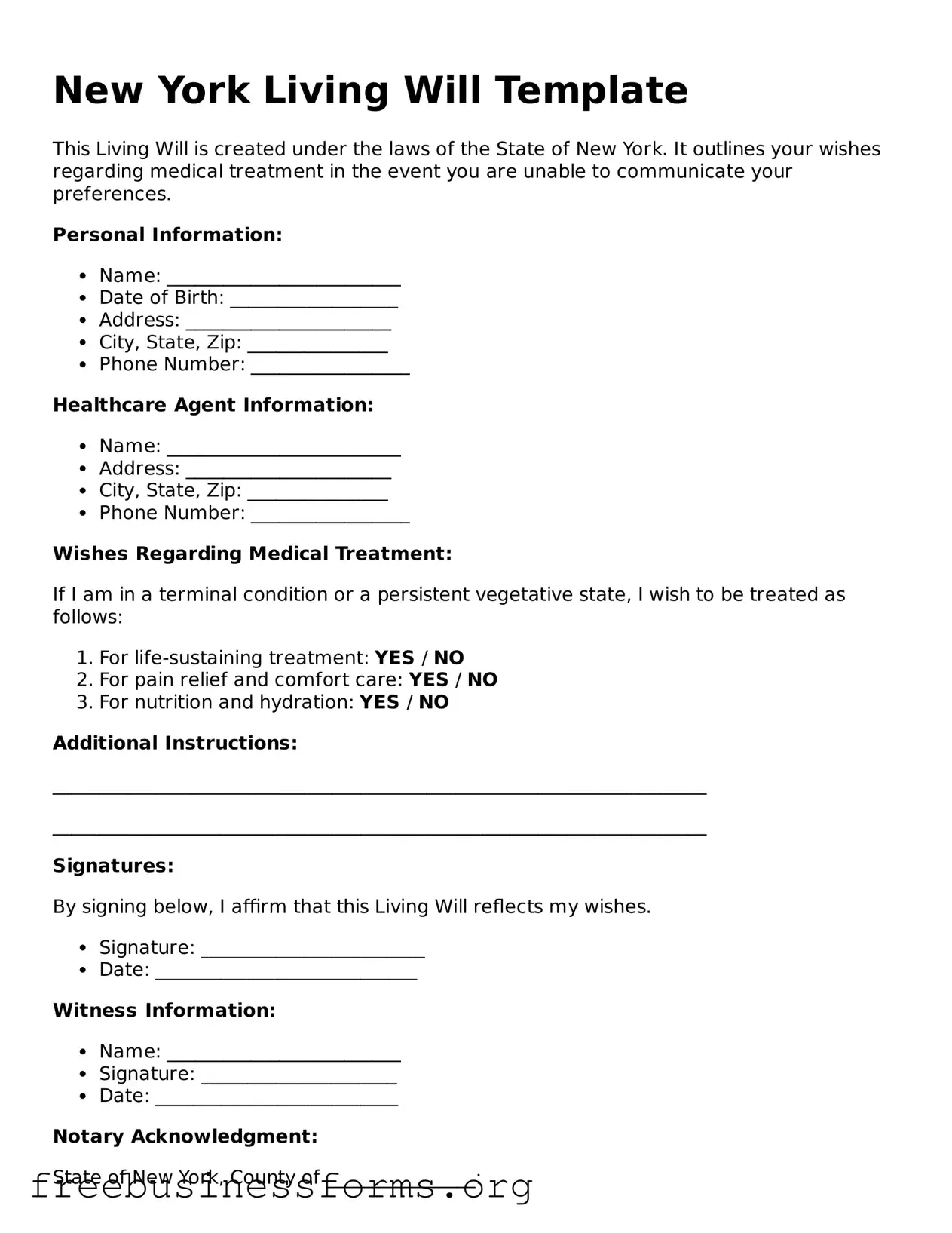Blank Living Will Template for New York
A New York Living Will form is a legal document that allows individuals to outline their preferences for medical treatment in case they become unable to communicate their wishes. This form provides guidance to healthcare providers and loved ones, ensuring that a person's values and desires are respected during critical moments. Understanding and completing this form can bring peace of mind to both individuals and their families.
Open Form Here

Blank Living Will Template for New York
Open Form Here

Open Form Here
or
↓ PDF File
Quickly complete this form online
Complete your Living Will online quickly — edit, save, download.